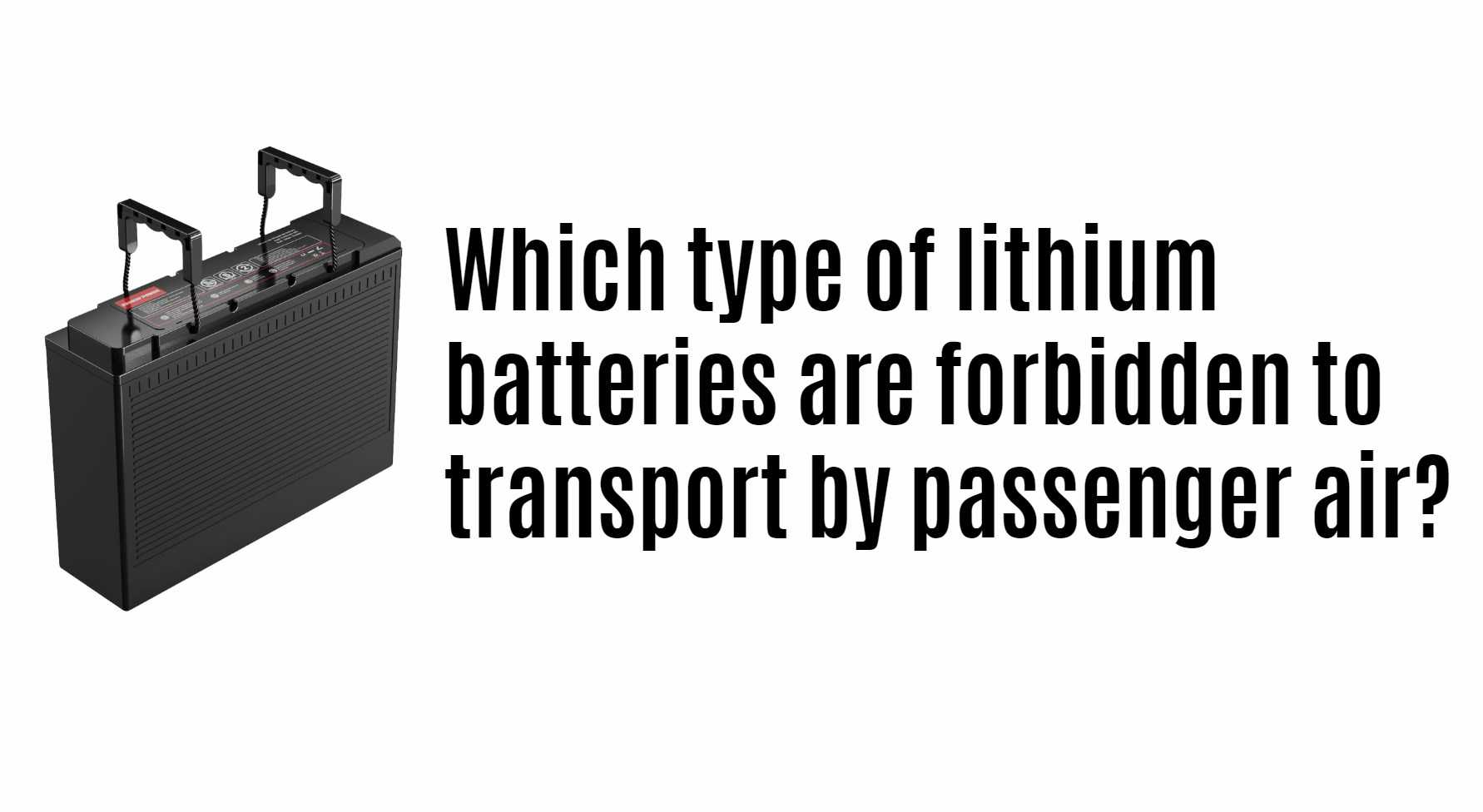Lithium batteries, particularly lithium-ion and lithium metal batteries, face strict regulations when it comes to air transport, especially on passenger aircraft. The International Civil Aviation Organization (ICAO) and the International Air Transport Association (IATA) have established guidelines that prohibit certain types of lithium batteries from being shipped as cargo on passenger planes.
Types of Lithium Batteries Forbidden for Passenger Air Transport
1. Lithium-Ion Batteries (UN3480)
- State of Charge Limitations: Lithium-ion batteries that are shipped alone (not contained in or packed with equipment) must not exceed a 30% state of charge (SoC). If they exceed this limit, they cannot be transported on passenger aircraft.
- Cargo Only: These batteries must be labeled as “Cargo Aircraft Only” (CAO) when shipped under specific conditions.
2. Lithium Metal Batteries (UN3090)
Wholesale lithium golf cart batteries with 10-year life? Check here.
- General Prohibition: All lithium metal batteries shipped by themselves are forbidden for transport as cargo on passenger aircraft. This includes non-rechargeable lithium batteries commonly used in devices like cameras and flashlights.
- Exceptions: In certain cases, lithium metal batteries may be transported on passenger aircraft if they meet specific quantity limits and have prior approval from the relevant authorities.
3. Damaged or Defective Batteries
- Any damaged or defective lithium-ion or lithium metal batteries are strictly prohibited from being transported by air due to the increased risk of fire or explosion.
Regulatory Background
The restrictions on transporting lithium batteries by passenger air are rooted in safety concerns:
Want OEM lithium forklift batteries at wholesale prices? Check here.
- Fire Hazards: Lithium batteries can pose significant fire risks if they overheat, short-circuit, or are damaged during transport.
- Recent Incidents: There have been multiple incidents involving lithium battery fires on aircraft, prompting stricter regulations to protect passengers and crew.
Latest Developments in Shipping Regulations
- Updated Guidelines: As of January 2023, revisions to the Hazardous Materials Regulation (HMR) standards further clarify the shipping requirements for lithium batteries, emphasizing the importance of adhering to state of charge limits and proper labeling.
- Increased Training Requirements: Shippers are now required to undergo training to understand the complexities of shipping hazardous materials, including lithium batteries.
Redway Expert Comment
As experts in lithium LiFePO4 battery technology, we recognize the importance of adhering to shipping regulations for lithium batteries. These measures are crucial for ensuring the safety of air travel while allowing for the responsible transport of essential technology.”
Conclusion
In summary, both lithium-ion batteries and lithium metal batteries face strict prohibitions when it comes to being transported as cargo on passenger aircraft. Adhering to regulations regarding state of charge and packaging is essential for ensuring safety during air transport. By understanding these guidelines, shippers can navigate the complexities of transporting lithium batteries while maintaining compliance with international safety standards.






